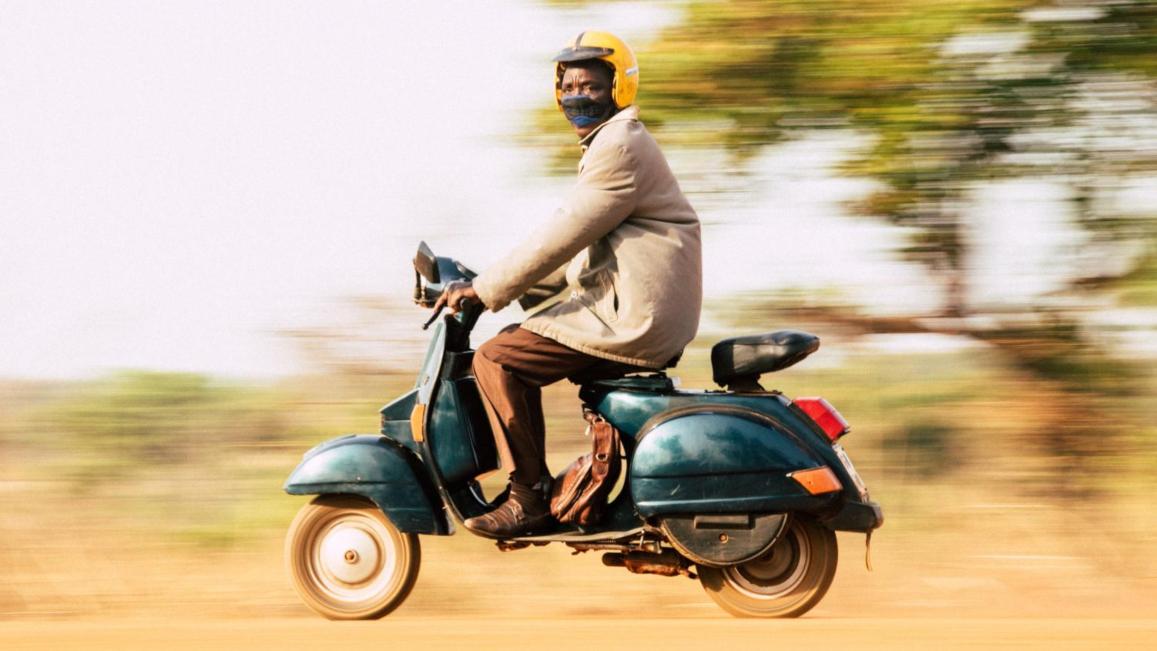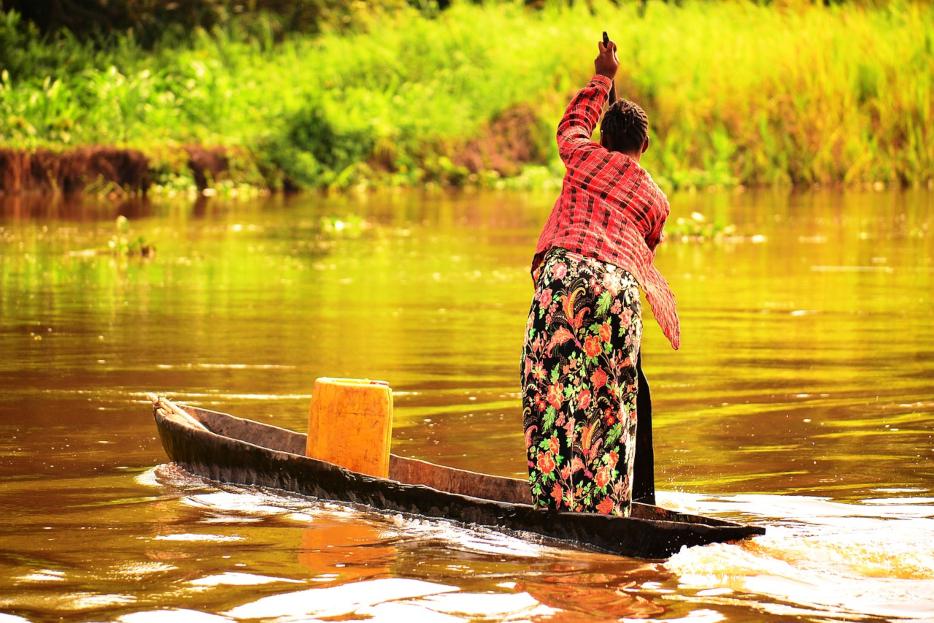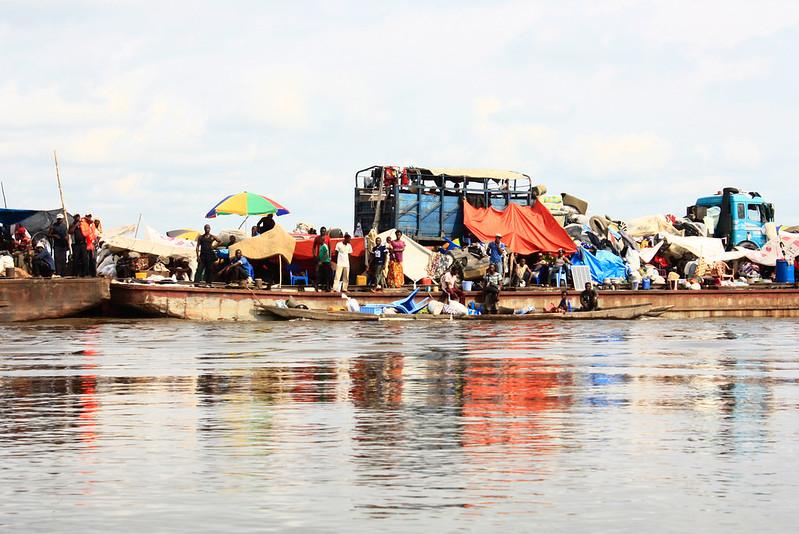Longitudinal studies often produce unexpected results. Pat Stys and Tom Kirk interview their fellow researchers, Bauma Johnson and Ishara Bintchumisi, about the challenges and learnings emerging from an ongoing project examining water governance in Goma, the Democratic Republic of Congo.
This post forms part of a series exploring an ongoing research project into water governance in Goma, the Democratic Republic of Congo.
IMAGINE is a large-scale five-year DFID-funded urban WASH programme that will reach up to 1 million beneficiaries in Goma and Bukavu through improved access to water, sanitation, and hygiene promotion. The overall goal is to decrease diarrhoea rates among children under five through an integrated approach improving infrastructure, promoting effective behaviour change, reinforcing market systems for WASH services, and improving governance and community accountability of these systems.
A team of five Congolese researchers have been collecting longitudinal data on 24 households’ social networks and financial management. They visit the households every two weeks to gather additional data and follow emerging stories. The aim is to better understand how they cope in an insecure environment and to use the information to improve the numerous development interventions and programmes that dot the city. Names of project participants mentioned in the following interview have been changed.
Choosing one of the neighbourhoods (quarters) you work in, what are the differences between the households of different socioeconomic levels participating in the project?
Buama: In Bujovo, close to the Rwandan border, an old widow called Elodie heads a low socioeconomic status household. Her three-bedroom house is made of wooden boards with an aluminium roof. One of the bedrooms doubles as a kitchen. Elodie also has modest furniture made from wood. She was given the small plot by her son who lives in Rwanda. Behind it she grows beans on her neighbourhood’s land.
For money, Elodie buys sacks of charcoal for $25 and sells the pieces in small bundles. She will often buy the sacks on credit when she has no money. The charcoal comes from Kimbumba – an area that grows vegetables – and is made by burning wood from the forest. In the past, she has also sold marijuana but as it is not considered a respectable business she is currently trying not to.
Her water comes from a nearby tank and costs roughly 100-150 CF per jerrycan. The tank is owned by an ex- pastor who has another tank in the neighbourhood. He fills them through trucks and is also rumoured to have a ‘relationship’ with a REGIDESO (the state owned water company) official who ensures the pastor’s business remains profitable.
Elodie’s deceased husband was Rwandan and a member of the Rwandan Patriotic Front when they met. The majority of his family still live across the border, so she has little contact with them. Her life is largely dependent on her daughter who works as a street sweeper and lives in the house with her two young children.
Yet, whenever she and her daughter are both in financial difficulties, they contact her son in Rwanda. He is studying whilst managing a boutique owned by the ladies’ brother in law’s two sons.
Recently, her daughter had an abortion and the recovery was very difficult. Elodie asked her son for money to pay the hospital bill. He sent some of his own money and, unbeknown to Elodie, also some of the daughter’s saved money that he guards for her.
Despite being across the border, the daughter considers her brother a safer and more trustworthy ‘money guard’ than anyone in Goma as he is family and is employed. His help also means she can hide money from her mother.
Ishara: In the same neighbourhood, there is a household of moderate socioeconomic status headed by a Hutu man and his Tutsi wife. Their desirable plot is at the juncture of two roads, has three rooms and a modern kitchen. They have three children who still live with them, and all go to a fee charging school.
Tom: What do you mean by ‘modern’?
Ishara: I mean a separate covered outdoor space for cooking with tiles on the floor. The furniture is cushioned and shortly after our research started the couple bought a TV and solar panel to run it.
The husband travels to work every day on his own motorbike. They own a shop selling parts for motorbikes from a plot they rent outside of the neighbourhood and near to Goma’s airport. The business’ monthly turnover varies a lot, with new parts going for a lot more than second-hand parts which they tend to sell more of.
So far, the household has been quite discreet about providing information about their networks, only mentioning a few friends and someone that works for MONUSCO during our initial visits.
We believe this is because last year bandits broke into their house and stole many of their belongings. However, as the work has progressed, they have started proactively inviting us to meet them to discuss what they’ve been up to. Slowly, we are beginning to learn more about their networks and expect stories of how they use them to emerge.
We also expect that the differences between the households will be more than just about the amount of money they have. It is likely that alongside paying for services, their connections will gain them access. But we will see.
Ishara, how do the methods you’ve been taught and the work you are doing on this project compare with what you learnt during your MA?
Ishara: During my MA on rural planning and development we were taught to work with the communities we conduct research on in a participatory way. We were taught about the need to speak the same languages and to wear the same clothes as participants. In essence, our methods are very similar: both require researchers to become like members of the family to a lesser or greater degree.
Bauma: I think language is the most important thing. In the DRC, each community has its own languages and the ability to speak them immediately grants a level of trust. It’s also important to be able to express yourself with spiritual, maternal language when conducting research.
I speak Lingala, Kihavu, Kishi, Swahili, Kinyarwanda, Kinande, Kihunde, French and English, Kirega, Kinyanga, Kibembe, Kitembo. I use Kinyarwanda, Swahili, Kihunde and Kitembo on this project!
Bauma, given your experience of travelling across the country, how does access to water for poor households differ in the smaller towns of Butembo and Beni to somewhere like Goma?
Bauma: In Butembo and Beni, hand pumps and libulu, which are very shallow wells that fill up in the rainy season, are the main sources of water. Unlike in Goma, the REGIDESO taps do flow regularly. But the water is so dirty it is the colour of red bricks. So many people get water from natural sources, such as streams, and travel very far for it. There are no informal sellers as we find in Goma.
A water programme, similar to Mercy Corps’, would not work in Butembo because it is mono-ethic – everyone is Nande – and they are not used to dealing with outsiders. They consider the area to be for them and them only, and they would be unlikely to welcome a business part-owned or believed to be part-owned by foreigners. Beni is far more cosmopolitan and, therefore, a better prospect for a similar programme.
What has been the most challenging aspect of the research and the most interesting thing you’ve learned?
Bauma: Always the money questions! Participants believe we must have money to give them because we are associated with Mercy Corps.
Ishara: Aside from this, certain Chefs de Avenues (Chiefs of the street) poorly introduced the project to the participating households (they are the gatekeepers for research). Because of this, some households thought we were there to give them micro-credit or bank loans, others to give handouts to vulnerable residents, others for Ebola sensitisations. It took almost a month, or two visits per household, to dispel these misunderstandings.
Bauma: What we have essentially learnt is how to make friends with strangers and to get them to open up to us.
Pat: Does this feel manipulative?
Bauma: Not anymore. We have real connections with the participants now. We visit them outside of our visits for the project. We also share details of our lives with them. For example, we council each other on problems in our marriages. Lots of the participants also tell young Ishara that he needs a rich wife and must marry. One has even found him a potential match!
Ishara: I want to add that the building of trust can also be communicated in small ways. For example, a participant who had been robbed invited us into his bedroom to talk about the incident.
Bauma: Everything important in life starts and ends in the bedroom, that’s where projects take place, babies are made and money is hidden.
Pat: Thanks guys, I think we can end on that insightful note!
The research project, examining water governance in Goma, DRC, is jointly funded by the Department of International Development (DFID) and the Centre for Public Authority and International Development (CPAID) through Mercy Corp’s IMAGINE programme.
Photo credit: Molly BergenWCS, WWF, WRI.




